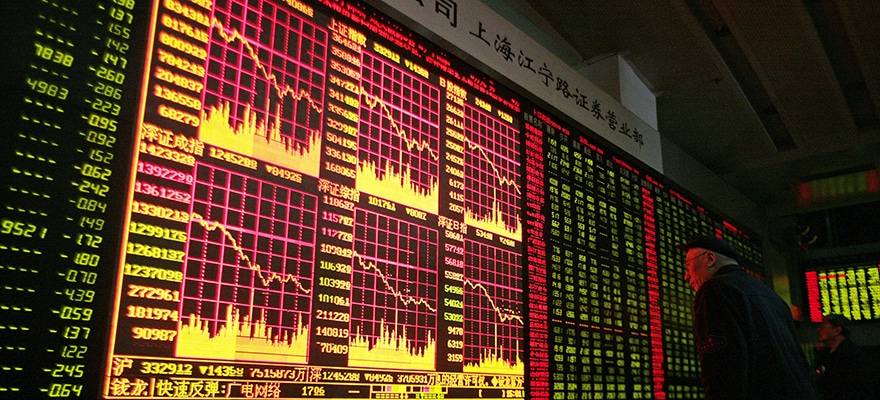The Shanghai Stock Exchange Composite Index (SHCOMP) dropped by 1.02% in trading today after setting a new record yesterday. On Monday the SHCOMP reached its highest mark since March 2008 following talks about possible further monetary stimulus by the People's Bank of China.
After a 50% surge in 2014 known as the "Super Bull Market," the Shanghai Composite has added over 17% since the start of 2015 before today's retreat. At the same time, the high-tech focused Shenzhen Composite or "China's NASDAQ" has risen over 38% this quarter.
Much like other stock indices around the world, reaching new heights thanks to cheap credit, Chinese equity markets have also rallied in recent months on the back of central bank easing measures.
Beyond QE and Chinese government spending, other common reasons for the rise are margin stock trading and the launch of a trading link with Hong Kong’s stock exchange providing unprecedented foreign access to the mainland Chinese securities markets.
Investors Turn Cautious
After the SHCOMP ventured into new territory not seen in seven years it is expected investors will start to show signs they feel uneasy with the thin air at the top. Indeed, Chinese fund managers lowered the proportion of their portfolios to be invested in stocks over the next three months to a six-month low (79.4% from 83.3%), a Reuters poll shows.
Meanwhile Bloomberg reported today that non-mainlanders already sold a net 1.7 billion yuan of Chinese shares via the Shanghai-Hong Kong Exchange link this week, while the two biggest Hong Kong exchange-traded funds (ETFs) tracking mainland stocks had withdrawals of $622 million.
The $9 billion iShares FTSE A50 China Index ETF has recorded outflows of $226 million during the past week, while the CSOP FTSE China A50 ETF had withdrawals of about $396 million, according to data compiled by Bloomberg.


















